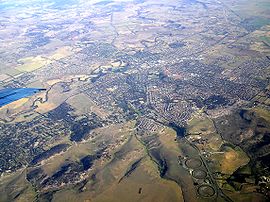

Collaborative Law offers numerous benefits for both clients and lawyers in Sunbury. One of the key advantages is that it promotes a more amicable and cooperative approach to resolving legal disputes. By working together in a collaborative setting, clients and their lawyers can find creative solutions that meet the needs and interests of all parties involved.
Additionally, Collaborative Law allows for greater control over the outcome of the case. Unlike traditional litigation, where a judge makes the final decision, clients have a say in the resolution process. This can lead to more satisfying outcomes and better long-term relationships between parties.
Another benefit of Collaborative Law is that it often leads to quicker resolutions. By avoiding lengthy court battles, clients can save time and money while also reducing stress and emotional strain.
Furthermore, Collaborative Law fosters open communication and trust between clients and their lawyers. This can result in stronger relationships and a more positive experience for everyone involved.
Overall, Collaborative Law offers a range of benefits for those seeking legal assistance in Sunbury. From promoting cooperation to providing more control over outcomes, this approach can help clients achieve effective and efficient resolutions to their legal matters.
Navigating family disputes legally doesn’t always mean stepping into a courtroom. Collaborative law is a legal process that offers families in Sunbury an alternative way to resolve disputes by working cooperatively outside of traditional court settings. This method focuses on negotiation and problem-solving rather than conflict and confrontation. Here’s how collaborative law works and how our team can assist you through the process.
In collaborative law, each party hires their own lawyer trained in collaborative practices. These lawyers assist their clients in negotiating a settlement that meets the needs of all parties involved. Unlike traditional family law cases, where lawyers are often in opposition, collaborative law requires lawyers and clients to work together as part of a collaborative team.
The process begins with each party signing a participation agreement, which outlines the commitment not to go to court and to share information openly. This agreement fosters a safe environment where both parties can discuss their needs and concerns transparently. Meetings are then held where both parties, their lawyers, and sometimes other neutral professionals, such as financial planners or family counselors, discuss and negotiate the terms of the settlement.
The goal is to reach an agreement that respects the interests of both parties and any children involved. If the process breaks down, the collaborative lawyers must withdraw, and the parties must hire new lawyers for litigation, although this is rare because of the strong commitment usually established by all involved.
If you're exploring alternatives to traditional litigation for your family dispute, collaborative law could offer a more peaceful and constructive resolution. Contact our experienced collaborative law lawyers in Sunbury to learn more about this process and how it can be tailored to suit your family’s needs.

Family lawyers in Sunbury often deal with a wide range of common issues that affect families on a daily basis.. These issues can be emotionally charged and complex, requiring the expertise of a skilled legal professional to navigate through them. One common issue faced by family lawyers is divorce and separation.
Posted by on 2025-02-20

Divorce can be a difficult and emotional process for all parties involved.. In Sunbury, couples have the option of going through either a traditional divorce proceeding or opting for a collaborative divorce.
Posted by on 2025-02-20

Planning for adoption can be a complex and emotional process, and having the right legal guidance can make all the difference.. If you're in Sunbury and considering adoption, it's important to work with knowledgeable family lawyers who specialize in this area of law. Adoption is a life-changing decision that requires careful planning and consideration.
Posted by on 2025-02-20

Choosing the right family lawyer in Sunbury can be a daunting task, especially when facing complex legal issues that involve your loved ones.. It's important to find a lawyer who not only has the expertise and experience in family law, but also someone who you feel comfortable working with and trust to represent your best interests. One of the first things to consider when choosing a family lawyer is their experience.
Posted by on 2025-02-20
| Sunbury Victoria |
|||||||||||||||
|---|---|---|---|---|---|---|---|---|---|---|---|---|---|---|---|

Aerial view of Sunbury, Victoria
|
|||||||||||||||
 |
|||||||||||||||
| Coordinates | 37°34′52″S 144°42′50″E / 37.58111°S 144.71389°E | ||||||||||||||
| Population | 38,851 (2021 census)[1] | ||||||||||||||
| • Density | 1,758/km2 (4,553/sq mi) | ||||||||||||||
| Established | 1836 | ||||||||||||||
| Postcode(s) | 3429 | ||||||||||||||
| Elevation | 309 m (1,014 ft) | ||||||||||||||
| Area | 22.1 km2 (8.5 sq mi) | ||||||||||||||
| Location | 38 km (24 mi) NW of Melbourne CBD | ||||||||||||||
| LGA(s) | City of Hume | ||||||||||||||
| State electorate(s) | Sunbury | ||||||||||||||
| Federal division(s) | McEwen | ||||||||||||||
|
|||||||||||||||
|
|||||||||||||||
Sunbury (/ˈsʌnbəri/ SUN-bər-ee, locally /ˈsʌnbri/ SUN-bree)[5][6] is a satellite suburb of Melbourne, Victoria, Australia, 38 kilometres (24 mi) north-west of Melbourne's Central Business District, located within the City of Hume local government area. Sunbury recorded a population of 38,851 at the 2021 census.[1]
Statistically, Sunbury is considered part of Greater Melbourne, as per the Victorian Government's 2009 decision to extend the urban growth boundary in 2011 to include the area in the Melbourne Urban Area as the north-western fringe of the Greater Melbourne area, giving its land urban status and value.[7]
The Sunbury area has several important Aboriginal archaeological sites, including five earth rings, which were identified in the 1970s and 1980s, and believed to have been used for ceremonial gatherings. Records of corroborees and other large gatherings during early settlement attest to the importance of the area for Aboriginal people of the Wurundjeri tribe.[8][9][10] One Indigenous name for the area of unknown language and meaning is 'Koorakoorakup'.[11]
Sunbury was first settled in 1836, by George Evans and William Jackson. It was Jackson and his brother, Samuel, who named the township Sunbury, after Sunbury-on-Thames, in Middlesex, England when it was established in 1857. The Post Office opened on 13 January 1858.[12]
Sunbury's connection with the history and development of Victoria is influential because of its most famous and powerful citizen, "Big" Clarke. In 1837, Clarke came to the area, and gained vast pastoral licences encompassing Sunbury, Clarkefield and Monegeetta.[13] His role as one of the biggest pastoralists in the colony, and his power and position within the Victorian Legislative Council, were highly significant in the early years of Victoria.
During the early decades of self-government in the Colony of Victoria there was a continual struggle in parliament, between the Legislative Assembly and the Legislative Council for ascendancy and the control of government. It was Council members, such as Clarke, who attempted to negate what they saw as the excesses of manhood suffrage, republicanism and Chartism, as embodied in the Assembly, in order to protect their own position.[14]
"Big" Clarke, as a member of the so-called bunyip aristocracy, also helped to frustrate legislative measures involving opening land to small farm selectors. Melbourne Punch depicted Clarke in anti-squatter cartoons, such as "The Man in Possession"[15] In 1859, "Big" Clarke was involved in a scandal around the discovery of gold on his holdings in Deep Creek. Shares in the Bolinda company soared and Clarke sold his shares at the peak of the rush, before the fraud was exposed. The gold assay was actually 'salted', possibly via a shotgun blast of golden pellets into the samples. Clarke claimed the rich assay was proved when washed in a soup bowl. The ever-barbed Melbourne Punch explained how the fraud worked in a cartoon of a chipped Chinese Willow Pattern plate titled "The Soup Plate".[16]
In 1874, Clarke's son William built a mansion on an estate named "Rupertswood", after his own son, Rupert. The estate had access to a private railway station. Though the station was constructed in the late 19th century, the Clarkes did not pay the railways for its construction until the 1960s. (Rupertswood railway station was closed as a result of the Regional Fast Rail project and is now only a disused platform).[17] The Clarkes also had a connection to the Kelly Gang story via their police connection with Superintendent Hare.
The younger William was the president of the Melbourne Cricket Club, and it was through that position that the touring English cricket team came to spend the Christmas of 1882 at Rupertswood. On Christmas Eve, the English team played a social game of cricket against a local team. Lady Clarke took one or more bails, burnt them, and put the ashes in a small urn, wrapped in a red velvet bag, which she presented to the English Captain, Ivo Bligh.[18] She proposed that the ashes be used as a perpetual trophy for matches between the two countries. The Ashes has since become one of the world's most sought-after sporting trophies.
In 1922, the Clarke family sold the property to H V McKay, the owner of the Sunshine Harvester Works, who died in 1926. His estate sold the property in 1927 to the Salesian Catholic order. Until recently, the mansion and surrounding property were used for educational and agricultural purposes, and as a boarding school for students undertaking both academic and agricultural endeavours. The school, known as Salesian College, Rupertswood, is still located on the property. The mansion has been restored, and is used for weddings and other formal functions.
In the early 1970s, the area, which was then still largely rural, became famous in Australia as the site of the Sunbury Pop Festival, which was held annually from 1972 to 1975.

Sunbury's residents represent diverse cultural backgrounds, and include a major working-class sector, dependent on proximity to major manufacturing and transport hubs, such as Melbourne Airport which is only 17.5 kilometres (11 mi) from the township. A recent trend for people who work in the Melbourne CBD to trade longer commute times for a more economic lifestyle (due to cheaper housing), has seen the population of Sunbury grow in number, with numerous new housing estates ringing the borders of the established township. Sunbury's population was recorded as being 25,086 in the 2001 census, and is estimated at 34,000 in 2016 census,[19] making it the 38th largest urban centre by population in Australia.

Ten bus routes service Sunbury:
Sunbury station is connected by Metro services to Melbourne on the Sunbury Line and by V/Line services on the Bendigo line to both Melbourne and country Victoria. V/Line services are not as frequent as those on the metropolitan Metro service – an approximate hourly frequency is provided by V/Line on weekdays, although on weekends service levels can be as infrequent as once every 80 minutes.
The State Government electrified the tracks between Sunbury and Sydenham in a $270 million investment, bringing more frequent passenger services to the town – these Metro services started operating on 18 November 2012.[30]

Primary schools
Secondary schools and high schools
Others
Sunbury is represented in the following sporting leagues:
Sunbury is represented by Cr Trevor Dance, Cr Jarrod Bell and Cr Steve (Jack) Medcraft in the Jacksons Creek Ward of the City of Hume. At State level, Sunbury is in the Electoral district of Sunbury, represented by Josh Bull. Federally, Sunbury is located in the Division of Hawke, represented by Sam Rae.
In 2023, Sunbury was the epicentre to a magnitude-4 earthquake,[35] which was felt by residents from Tasmania to New South Wales.
very helpful, encouraging and informative.
Collaborative Law Lawyers in Sunbury can assist you in resolving family law matters such as divorce, child custody, and property division through a collaborative process that promotes cooperation and communication.
Collaborative Law Lawyers in Sunbury offer a more amicable and cost-effective approach to resolving family law disputes, allowing parties to maintain control over the outcome and avoid the uncertainty of court proceedings.
You can research online for reviews and recommendations, contact local bar associations for referrals, or schedule consultations with potential lawyers to discuss your specific needs and evaluate their experience in collaborative law practices.